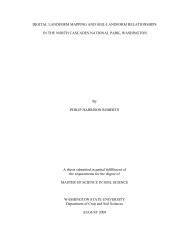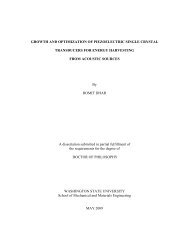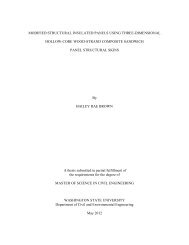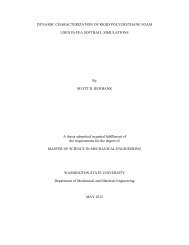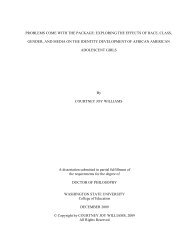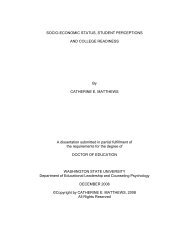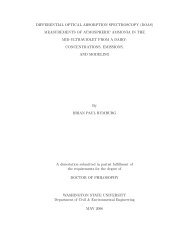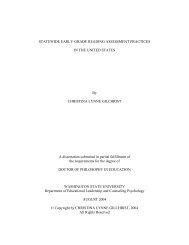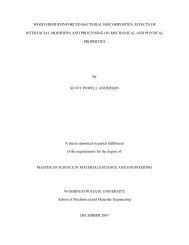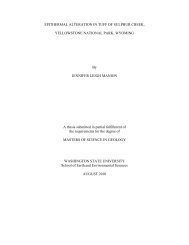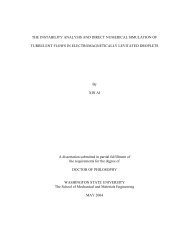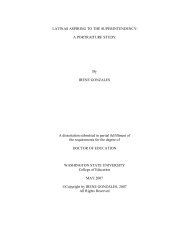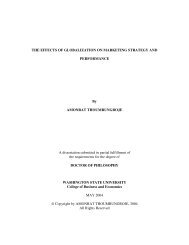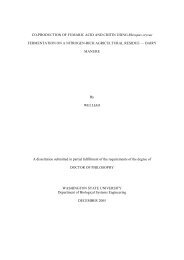the moral reasoning of student athletes and athletic training students
the moral reasoning of student athletes and athletic training students
the moral reasoning of student athletes and athletic training students
You also want an ePaper? Increase the reach of your titles
YUMPU automatically turns print PDFs into web optimized ePapers that Google loves.
“Moral <strong>reasoning</strong>, a systematic, logical, <strong>and</strong> rational process whereby we identify issues,<br />
examine opposing views, <strong>and</strong> attempt solutions, is predicated on our abilities to be impartial,<br />
consistent, <strong>and</strong> reflective” (Lumpkin, Stoll, & Beller, 2003, p. 255-256). While one right answer<br />
may not exist, <strong>moral</strong> <strong>reasoning</strong> helps us to minimize our own prejudices, remove false beliefs,<br />
<strong>and</strong> help us to better underst<strong>and</strong> opposing views. Moral <strong>reasoning</strong> in this case is a pedagogical<br />
process based in <strong>the</strong> deontological <strong>moral</strong> philosophies <strong>of</strong> Rawls (1971), Kant (1785 cited in<br />
Frankena, 1973), <strong>and</strong> Frankena (1973). Deontological <strong>moral</strong> <strong>the</strong>ory holds that <strong>the</strong>re is an inherent<br />
right apart from <strong>the</strong> consequences that guide our <strong>moral</strong> action (Frankena, 1973). Thus <strong>moral</strong><br />
<strong>reasoning</strong> teaches us how to come to terms with <strong>the</strong> <strong>moral</strong> principles that guide our lives <strong>and</strong><br />
<strong>the</strong>n learn to consistently, impartially, <strong>and</strong> reflectively apply <strong>the</strong>m to <strong>the</strong> <strong>moral</strong> issues we face in<br />
our lives.<br />
Because sport involves participation between individuals, <strong>moral</strong> issues such as doping,<br />
surface <strong>and</strong> persist. Moral <strong>reasoning</strong> is <strong>the</strong> constant in <strong>the</strong> <strong>moral</strong> equation that helps us to<br />
examine what we believe <strong>and</strong> why we believe it in relation to what is right in a universal sense,<br />
why it is right in a universal sense, <strong>and</strong> <strong>the</strong>n <strong>the</strong> underlying socio-<strong>moral</strong> principles that guide<br />
what is right <strong>and</strong> why it is right.<br />
Bredemeier <strong>and</strong> Shields (1984a; 1984b; 1986; 1994; 1998) have conducted much<br />
research in <strong>the</strong> area <strong>of</strong> <strong>moral</strong> <strong>reasoning</strong> in sport especially as it relates to children (Bredemeier,<br />
1985, 1994; Bredemeier, Weiss, Shields, & Cooper, 1986, 1987; Bredemeier, Weiss, Shields, &<br />
Shewcuck, 1986) . Bredemeier <strong>and</strong> Shields (1994) described how <strong>the</strong> nature <strong>and</strong> structure <strong>of</strong><br />
sport affect <strong>the</strong> levels <strong>of</strong> <strong>reasoning</strong> <strong>athletes</strong> use on <strong>and</strong> <strong>of</strong>f <strong>the</strong> field. According to Bredemeier <strong>and</strong><br />
Shields, “What has <strong>moral</strong> significance in sport is <strong>the</strong> configuration <strong>of</strong> social relationships <strong>and</strong><br />
interactions that characterize particular sport experiences” (1994, p. 176). The fact that sport is<br />
27



